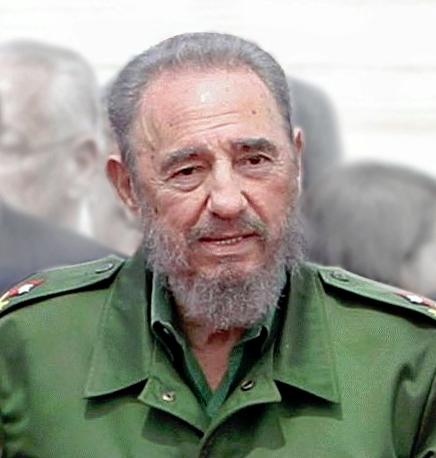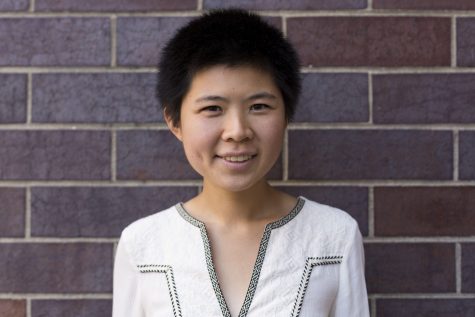NYU Reacts: Former Cuba President Fidel Castro Dies at 90

Former Prime Minister of Cuba Fidel Castro died on Nov. 25, and NYU students have something to say about it.
November 29, 2016
Fidel Castro’s legacy is one of mixed reception, particularly among those directly affected by his dictatorial regime. After more than five decades of controlling Cuba until his resignation in 2008, Castro’s grasp of the Caribbean island finally came to an end last Friday after he passed away at the age of 90.
We talked to past and present NYU students about Castro’s death, who had varying reactions to the news. Some students praised his work as an accomplished revolutionary while others cited his regime as one of oppression with unparalleled tyranny, a dire economic downfall and major social consequences for the Cuban people.
“As horrible as it is, I’m excited about Castro’s death. I think it symbolizes the end of an era, or at least a positive move towards one. I come from a family that’s faced a lot of tragedy because of Castro’s regime and I’m glad to be able to start to put that behind us. Cubans everywhere are celebrating. This is something that unites people. I’m hopeful for the future and hope to see a free Cuba sometime soon.”
— Katie Armstrong, CAS freshman
“Castro was a decisive figure. For someone who did so much bad, he did his fair share of good. For decades Cuba was a light to Latin America and the world. A sign that not everything was futile, and that however many times they tried to crush us we could still carry on living. In Fidel Castro we don’t mourn our defeat, but our victory. Socialism has a unique sense of defeat because it is the movement of the defeated. Hasta la victoria, siempre.”
— Anthony Scelza, Tandon freshman
“Castro in no way should be heralded. He leaves behind a shattered country that had experienced a brutally repressive political regime. Fidel Castro was a despot, a murderous tyrant who perpetrated his horrific acts under the guise of revolution. Castro was a narcissistic dictator who disregarded the plight of his people in order to achieve personal gain. He valiantly fought against taking advantage of the international economic system, completely disregarding the idea of improving the standard of living of his people. I believe that as Cuba continues to move toward the global world, history will condemn and vilify Castro as a tyrant who held Cuba back for five decades.”
— Daniel Kurzyna, first-year graduate student
“Castro was praised for being a revolutionary by many left-wingers. However, there were a lot of atrocities and human rights violations he committed, whether it be forceful seizure of property, execution of dissenters or imprisonment of those practicing free speech that caused many of my Cuban friends and their families to flee their homeland in terror. Many people died trying to escape the oppressive regime that he had established, so although many left-wingers might disagree with the fact that he brought abject poverty into Cuba, his abuse of power is as inexcusable as that of the dictators preceding him.”
— Juan Giordano, Gallatin senior
“He was totally a vigorous anti-imperialist. He inspired many people around the world with the feeling that they are not powerless against the oppression of colonialism and imperialism. However, he and his politics were problematic in many ways. For example, the government he set up was not democratic — popular support is not the same as democratic control.
— Alex Ferrena, CAS senior
“For me, as a socialist, there’s a lot to learn from Castro and the Cuban Revolution. It goes to show that imperialism can and should be challenged. But it also shows that, unlike under Castro, for a revolution to reach its full potential, it requires a working class-led, complete and full democracy, and because of Castro, we can correct his mistakes the next time a revolution comes around.”
— Nikki Camera, CAS junior
“A lot of Republican celebration of Castro’s death is especially repulsive. They backed and voted into office a man who lauds a violent attitude, celebrates the idea of repressing media dissent and openly brags about breaking the law. It shows that their dislike of authoritarians only applies when their privilege is threatened. As for Castro himself, there is no doubt he is a monster of a man, as any authoritarian is. There are bright spots in Castro’s history, as he came to power as a revolutionary and a visionary. However, power consumed him, and his maltreatment of the Cuban people is reprehensible, regardless of politics.”
— Ben Natan, Gallatin senior
Additional reporting by Sayer Devlin and Natasha Roy. Email The News Team at [email protected].


























































































































































Nice Editing Job • Nov 29, 2016 at 7:46 pm
Cuba is not a Mediterranean island… can we get at least the BASIC facts straight? XD
Alex Lopez • Nov 29, 2016 at 5:23 pm
Please read the communist manifesto before glorifying this scum. Good riddens to Castro!
“In this sense, the theory of the Communists may be summed up in the single sentence: Abolition of private property(Capitalism)” – Communist Manifesto
“Abolition of the family! Even the most radical flare up at this infamous proposal of the Communists. ” – Communist Manifesto
Daniel Francis • Nov 29, 2016 at 4:09 pm
For non-racist South Africans Fidel Castro will forever be the greatest leader of the twentieth century. The world’s two mightiest democracies, Britain and the U.S.A., for forty years supported the non-democratic apartheid-racist regime of South Africa. That regime had supported Nazi-racist Hitler during the war, but that did not matter to Britain and the U.S.A. (Nor to Israel later on in collaboration with apartheid South Africa to build nuclear weapons for Israel.) For those forty years, Canada, ever the coy strumpet cheerleader, engaged in a canuck mincing close-thighs virginal two-step behind the arras.
The Anglo-American Company in South Africa owned/owns all the gold mines. Another foreigner Whites-only Company owned all the diamond mines. On 22 March 1988 Fidel Castro’s army defeated the racist South Africans at the battle of Cuito Cuanavale, Angola. British and American assistance in the battle was of no avail to their racist ilk bedfellows. Cuito Cuanavale was the biggest military engagement on the continent of Africa since the Second World War. As in those others, racists lost in Angola, too. Britain and America swallowed their racist pride. Time to forsake their racist bedfellow Afrikaners. After forty years, the sheets had become sticky. They made a deal with Fidel Castro. ‘Please, please, do not carry the war into South Africa. Give us time to bring a face-saving (our faces, that is) end to the apartheid-racist regime in South Africa.’ Nelson Mandela was in jail in South Africa in 1988. Nelson Mandela was released from jail in 1990. In 1994, a mere six years after Angola, Nelson Mandela was democratically elected South Africa’s first non-White President. Apartheid-racism had been defeated because of only Fidel Castro’s fearless war against racism supported by two racist dinosaurs nuclear-armed to the teeth. Fidel, vivir para siempre victoriosa, mi amigo!